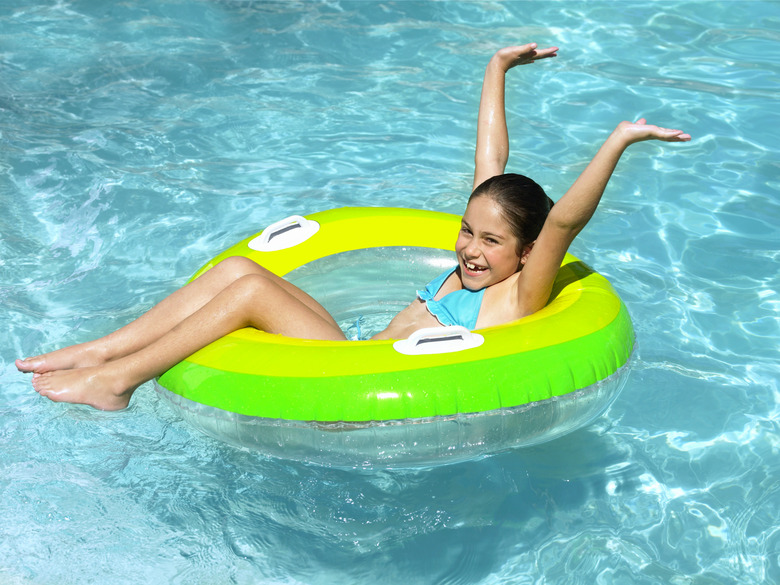How Much Water Is In A 15-Foot By 4-Foot Pool?
Calculating how much water is in your pool isn't difficult as long as you know the dimensions of your pool and can do some basic math. Use the total gallons inside your pool to help determine how much your water bill will be to fill your pool or how much chemicals you'll to need to add to the water.
Step 1
Determine the diameter of your pool by drawing the tape measure across the pool from one side of the pool to the other. You can obtain this measurement by asking someone to stand outside the pool and climbing inside the pool yourself to draw the tape measure across the inside of the pool. Measure the depth of the pool by either placing the tape measure on the outside of your above ground pool or by placing the tape measure along the bottom of the inside of your pool.
Calculations
Step 1
Multiply the diameter by the diameter by the depth by the water by the number 5.9 to determine the volume. For a 15-foot round pool that is 4 feet deep, the fomula would look like this: 15 x 15 x 4 x 5.9 = 5,310 gallons of water.
Considerations
Step 1
If you have an oval-shaped pool, you'll need to calculate the volume slightly differently. Multiply the length times the width by the depth by the number 5.9.
Step 2
- Determine the diameter of your pool by drawing the tape measure across the pool from one side of the pool to the other.
Tips
Step 1
Take a sample of your pool water to the pool store. Pool store employees can help you determine how much of each chemical you'll need to add to the pool to get your water up to adequate cleanliness levels.
